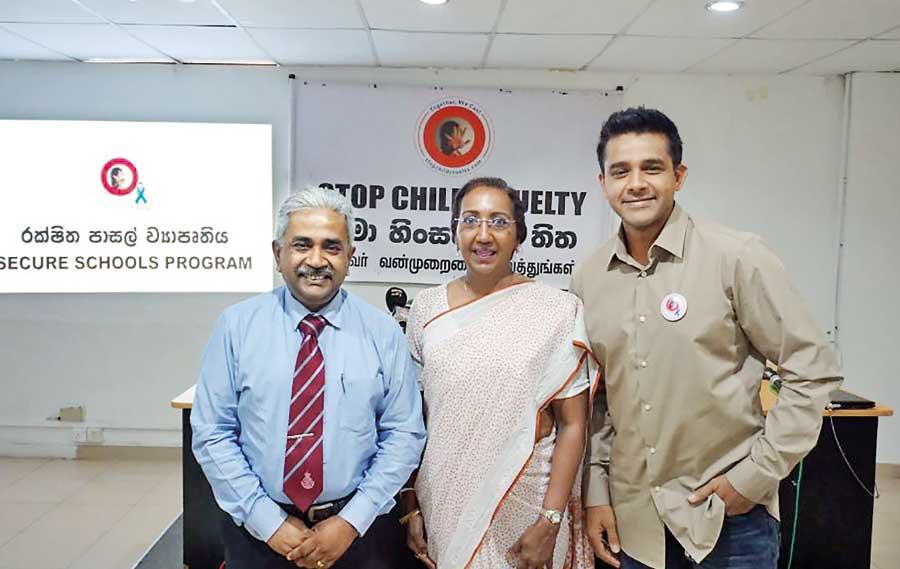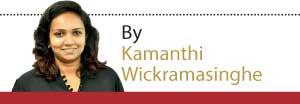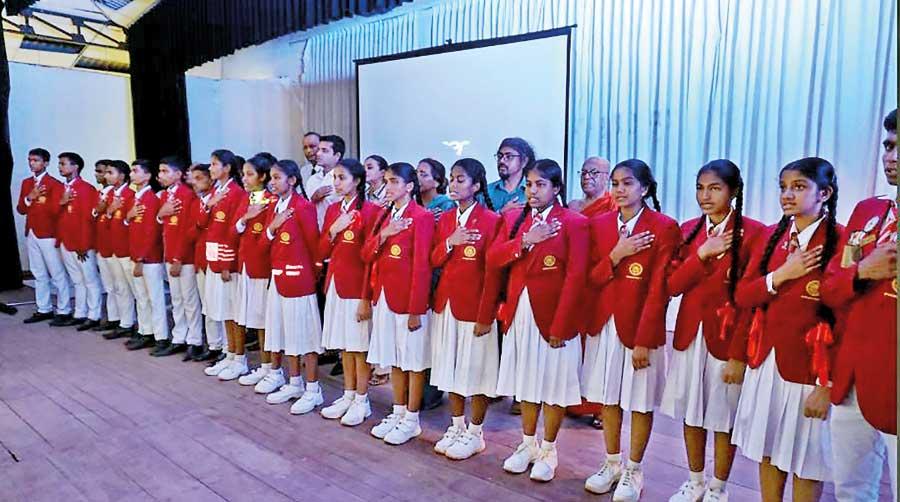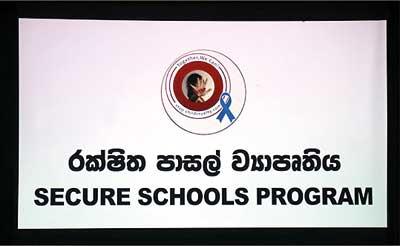Reply To:
Name - Reply Comment

Dr. Vinya Ariyaratne (left), Dr. Tush Wickramanayaka and Saranga Disasekara, Actor and Ambassador for the #NoGuti campaign
On Universal Children’s Day- which fell on November 20- State Minister of Women’s and Children’s Affairs Geetha Kumarasinghe said in Parliament that over 2000 teenage mothers have been reported from Sri Lanka for the year 2022. These statistics were issued by the Family Health Bureau. In addition medical experts reveal that over 8000 children have become victims of grave sexual abuse or harassment from January to October this year. It is in this backdrop that child abuse has been identified as an unbearable burden on the country; hence child protection becomes a collective social responsibility.
been reported from Sri Lanka for the year 2022. These statistics were issued by the Family Health Bureau. In addition medical experts reveal that over 8000 children have become victims of grave sexual abuse or harassment from January to October this year. It is in this backdrop that child abuse has been identified as an unbearable burden on the country; hence child protection becomes a collective social responsibility.
A secure future
Stop Child Cruelty Trust (SCC) founded by Dr. Tush Wickramanayaka has been in the forefront in raising awareness on child protection over the past few years. One of its main goals is to put an end to corporal punishment in schools while educating parents, teachers and children on why it’s important to grow up in a violence and harassment free society. In view of Universal Children’s Day the National ‘Happier and Safer Education - Secure Schools programme’ was launched this year to further their cause of child protection in Sri Lanka.
“The #NoGuti Campaign to end corporal punishment in schools was launched in February 2022 and the secure schools programme will add more weight to our commitment to end violence, harassment and abuse faced by children,” said Dr. Wickramanayaka at a recent media briefing. “The Secure Schools’ programme has been introduced to 39 schools in the Southern Province while Hikkaduwa Sri Sumangala Vidyalaya will engage in the full one and a half year programme as a the beacon school of Southern Province,” she said.
Explaining the need to introduce this programme at this hour, Dr. Wickramanayaka said that Sri Lanka is a signatory to the UN Child Rights Convention and the country’s progress and commitments are being reviewed every four years. “In 2018 the UNCRC in its review of Sri Lanka’s report identified five categories as ‘urgent and critical’. The first is an end to corporal punishment and any form of harassment against children, the second is the eradication of child sexual abuse, the third is with regards to ending child labour, the fourth is to improve wellbeing of homeless children and the fifth is with regards to updating the legal framework,” Dr. Wickramanayaka explained.
“These recommendations were based on a proposal which was submitted by the National Child Protection Authority (NCPA) following a study they had conducted in 2017 on disciplining mechanisms in schools,” she continued. “Following this study the UNCRC issued 18 recommendations to the NCPA, Ministry of Children’s Affairs and the Health Ministry. A majority of these recommendations were linked to educational reforms. The recommendations indicate that secure schools need to be introduced and that they need to have child protection policies and teacher training programmes to improve the psycho-social wellbeing of children. As such, the ‘Secure Schools’ programme is based on these recommendations and two key features include the introduction and implementation of child protection policies in schools and a transparent mechanism to receive complaints. We also plan to educate parents through a separate series of workshops, so that they’re aware of the Constitution and their rights as a citizen. Parents will also be educated on anti-social behaviours among children with regards to their addiction to drugs etc., and also raise awareness on sexual health among children and how they become vulnerable to cyber abuse and harassment,” she explained.

Students of the Sri Sumangala Vidyalaya, Hikkaduwa
Burden on health sector
“One indicator that assess the progress of a country is how its children are being treated,” said Sri Lanka Medical Association President Dr. Vinya Ariyaratne. “From January 1, 2023 to October over 8000 children have fallen victim to incidents of grave sexual abuse and/or harassment. These are only the reported number of cases. Over 80% of these children require counseling and medical attention. Sri Lanka’s health sector is facing a challenging period since the COVID-19 pandemic followed by the economic crisis. The prevailing shortage of drugs and the unavailability of facilities for emergency treatments have worsened the situation. When a child who has become a victim of a grave sexual abuse is being hospitalised, specialists across various fields including paediatricians, surgeons, paediatric surgeons, psychiatrists and sometimes even obstetricians and gynecologists too should contribute their expertise,” said Dr. Ariyaratne.
“On the other hand there is no proper mechanism to support children who have faced sexual abuse, harassment and violence. The child will be affected psychologically and if it’s a girl she may become pregnant. The existing legal framework and so-called safe houses may often revictimize the child. Even though the child hasn’t done any wrong the existing legal framework often treats the child as a perpetrator. While the government will have to spend on the reported number of children who have become victims of grave sexual abuse and/or harassment, there is a whole number of cases that go unreported. In most instances these children don’t get exposed due to societal pressure. It is only during an emergency that these children get admitted to a hospital, but by that time the child has already experienced and borne the physical and psychological damage,” Dr. Ariyaratne stressed.
may become pregnant. The existing legal framework and so-called safe houses may often revictimize the child. Even though the child hasn’t done any wrong the existing legal framework often treats the child as a perpetrator. While the government will have to spend on the reported number of children who have become victims of grave sexual abuse and/or harassment, there is a whole number of cases that go unreported. In most instances these children don’t get exposed due to societal pressure. It is only during an emergency that these children get admitted to a hospital, but by that time the child has already experienced and borne the physical and psychological damage,” Dr. Ariyaratne stressed.
“There have been enough studies done on preventing child sexual abuse and there are risk factors to identify a child who lives in a vulnerable environment. Therefore teachers need to take a frontline role in identifying these children rather than turning a blind eye to them. This is one of the initial steps that could be taken in terms of primary prevention. Sexual health education should be made compulsory as a second step. Around 10-15 years ago the Health Ministry presented recommendations and proposals on why this subject needs to be introduced. But these recommendations were rejected as a result of opposition from various other civil groups. Hence we are now experiencing the repercussions of rejecting these proposals. Sexual health education will not only address the physical behaviours of sexual health, but it will educate children on how and why they should protect their bodies,” he underscored.
A recent report issued by the Auditor General’s Department indicates a backlog of over 40,000 complaints of child abuse. The legal fraternity has expressed its concerns on this matter and reiterated why all relevant institutions responsible for child protection should work cohesively to expedite cases and provide relief to victims. Many of these victims have been suffering for years. Child abuse has now been identified as one of the top grave crimes in Sri Lanka. Retired Deputy Inspector General Priyantha Jayakody further explained why the Police should act more vigorously to present evidence in courts without delays to avoid the burden on law and order and judiciary services.